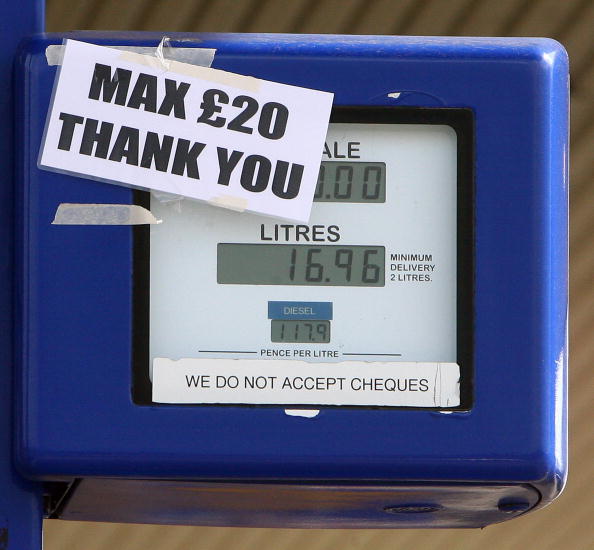Petrol rationed to stop hoarding as supplies dwindle on the forecourts

Your support helps us to tell the story
From reproductive rights to climate change to Big Tech, The Independent is on the ground when the story is developing. Whether it's investigating the financials of Elon Musk's pro-Trump PAC or producing our latest documentary, 'The A Word', which shines a light on the American women fighting for reproductive rights, we know how important it is to parse out the facts from the messaging.
At such a critical moment in US history, we need reporters on the ground. Your donation allows us to keep sending journalists to speak to both sides of the story.
The Independent is trusted by Americans across the entire political spectrum. And unlike many other quality news outlets, we choose not to lock Americans out of our reporting and analysis with paywalls. We believe quality journalism should be available to everyone, paid for by those who can afford it.
Your support makes all the difference.Britain's motorists faced rationing at petrol stations yesterday, as major suppliers tried to stop them hoarding fuel. Concern over supplies as the Grangemouth refinery in Scotland closed down led to fuel queues on forecourts across Scotland, the north of England and parts of Wales.
Panic over future supplies grew as news spread that BP's Forties pipeline in the North Sea would be fully closed by today and that it could be two weeks before the supply line is fully functioning again.
Ministers and petrol suppliers insisted it was "business as usual", with no danger of shortages as long as nobody panicked.
However, oil and gas industry leaders have urged the Government to intervene in the Grangemouth dispute. Malcolm Webb, chief executive of Oil & Gas UK, said: "It is now time for the Government at the highest level to step in and take all the necessary actions to ensure that the country is not held to ransom in this manner." He said 80 companies and their operations were now being affected. and estimated that the closure of the Forties pipeline will cost the UK economy £50m in lost production.
The Secretary of State for Business, John Hutton, said: "The advice that I have received is that there is plenty of fuel in Scotland for a significant period."
Despite these reassurances, several garages reported that they had already sold out of fuel or were running low on supplies.
One garage owner near Aberdeen said he had completely sold out of fuel. "We won't be getting any more until next week. We have sold a lot of Maltesers today."
Queues for petrol had developed at scores of other garages, with some drivers equipping themselves with jerry cans to collect as much fuel as possible. Many garages were limiting individuals to between £10 and £25 worth of fuel.
Alex Salmond, Scotland's First Minister, began walking to appointments this weekend, rather than driving, in order to save fuel.
Officials have also been banned from using ministerial cars to transport papers, and the finance minister, John Swinney, cancelled some engagements to help save fuel.
A Scottish Executive spokesman said the worst problems had been experienced in the cities, where taxis are already struggling to find diesel.
British Airways said it was refuelling in England rather than Scotland.
Paul Watters of the AA said: "People should accept that they will probably be rationed to an amount of petrol to conserve supplies."
Chris Hunt, director general of the UK Petroleum Industry Association, said: "In Scotland, the problem is mainly one of distribution, as higher levels of demand than normal are causing stock-outs at some filling stations."
Several garages reported sharp increases in demand over the past three days, although a BP spokesman maintained customers should not be fooled by pictures of long queues. "That kind of incident is, to my knowledge, the exception, not the norm. Queues are not typical," he said.
Mr Hutton said an emergency plan thrashed out after the last fuel crisis, eight years ago, should not be needed. "The essential precondition for triggering the national emergency plan is that there is a threat to fuel supplies or a shortage of fuel supplies. We have stocks [and] we have the ability to import through Grangemouth."
He said the Government would intervene if it thought it necessary.
Join our commenting forum
Join thought-provoking conversations, follow other Independent readers and see their replies
Comments